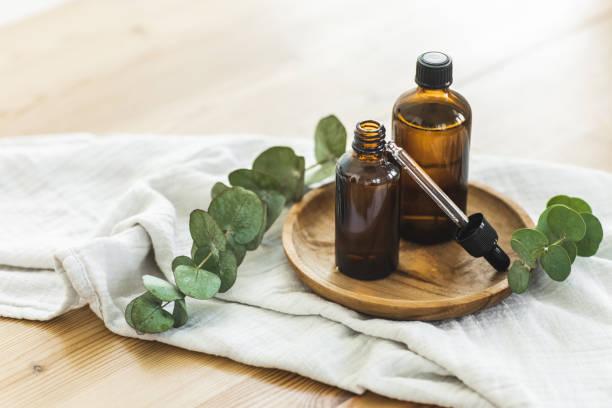Caring for your skin during and after Buy Isotretinoin Online treatment is crucial to maintaining skin health, minimizing side effects, and achieving long-term benefits. Accutane is a potent medication used to treat severe acne, and while it can be highly effective, it also requires diligent skincare practices to ensure optimal results and skin recovery. This comprehensive guide will cover essential skincare tips, precautions, and recommendations for individuals undergoing Accutane treatment and those transitioning to post-treatment skincare.
Understanding Accutane Treatment
Accutane works by reducing oil production, preventing clogged pores, and addressing underlying causes of acne. It is typically prescribed for severe, cystic, or treatment-resistant acne that hasn't responded to other therapies. Accutane is known for its ability to produce significant improvements in acne lesions, but it also comes with potential side effects, including dryness, sensitivity, and increased sun sensitivity.
Skincare During Accutane Treatment
Use Gentle Cleansers:
Opt for mild, non-comedogenic cleansers that do not strip the skin of its natural oils. Avoid harsh scrubs or exfoliants that can irritate sensitive skin.
Moisturize Regularly:
Keep your skin well-hydrated with oil-free, non-comedogenic moisturizers. Apply moisturizer at least twice daily, especially after cleansing, to combat dryness and flakiness.
Protect Lips:
Use a moisturizing lip balm with SPF to prevent dry, chapped lips, a common side effect of Accutane. Reapply lip balm throughout the day as needed.
Sun Protection:
Accutane can increase sun sensitivity, so it's crucial to use a broad-spectrum sunscreen with SPF 30 or higher daily. Reapply sunscreen every two hours, especially if outdoors or exposed to sunlight for extended periods.
Avoid Harsh Products:
Steer clear of products containing alcohol, retinoids, benzoyl peroxide, or alpha hydroxy acids (AHAs) while on Accutane, as they can exacerbate dryness and irritation.
Stay Hydrated:
Drink plenty of water to maintain skin hydration from within. Proper hydration supports overall skin health and can help mitigate dryness associated with Accutane.
Limit Makeup Use:
If using makeup, choose oil-free, non-comedogenic products that won't clog pores. Minimize heavy makeup application and remove makeup thoroughly before bedtime.
Protect Eyes:
Accutane may cause dryness in the eyes, so use lubricating eye drops if needed and wear sunglasses to shield your eyes from sunlight and wind.
Managing Side Effects
Dry Skin:
Combat dryness by using a rich, emollient moisturizer containing ingredients like hyaluronic acid, glycerin, or ceramides. Avoid hot showers or baths, as they can further dry out the skin.
Dry Lips:
Apply a thick layer of lip balm or ointment throughout the day, and consider using a lip mask or overnight treatment to hydrate and repair dry, cracked lips.
Sensitive Skin:
Opt for fragrance-free, hypoallergenic skincare products to minimize the risk of irritation. Avoid harsh toners, astringents, or acne treatments that can exacerbate sensitivity.
Sun Sensitivity:
Wear protective clothing, such as hats and long sleeves, in addition to using sunscreen. Seek shade during peak sun hours, typically between 10 AM and 4 PM.
Mood Changes:
While rare, some individuals may experience mood changes or depression while on Buy Accutane Online. Monitor your mental well-being and seek support from healthcare providers if you notice any concerning symptoms.
Post-Accutane Skincare
Gradual Transition:
As you complete Accutane treatment, gradually reintroduce skincare products and treatments. Start with gentle, hydrating products and avoid harsh or exfoliating ingredients initially.
Continue Sun Protection:
Maintain diligent sun protection habits even after completing Accutane. Use sunscreen daily, wear protective clothing, and seek shade to prevent sun damage and premature aging.
Hydration and Moisture:
Continue using hydrating moisturizers to keep your skin nourished and balanced. Consider incorporating serums or treatments with hyaluronic acid or niacinamide to enhance hydration and skin barrier function.
Addressing Post-Acne Marks:
If you have residual hyperpigmentation or acne scars after Accutane, consult a dermatologist for treatment options such as topical creams, chemical peels, microneedling, or laser therapies.
Monitor Skin Health:
Stay vigilant about changes in your skin post-Accutane, such as new breakouts, dryness, or irritation. Report any concerns to your dermatologist for proper evaluation and management.
Healthy Lifestyle:
Maintain a healthy lifestyle with balanced nutrition, regular exercise, adequate sleep, and stress management. These factors contribute to overall skin health and well-being.
Long-Term Benefits of Accutane
Clearer Skin:
Accutane can provide long-lasting improvements in acne severity and frequency, leading to clearer, smoother skin with reduced breakouts.
Reduced Scarring:
By targeting deep-seated acne lesions and preventing new breakouts, Accutane may help minimize the risk of acne scarring and promote smoother skin texture over time.
Improved Confidence:
Clearing severe acne can have a significant impact on self-esteem and confidence levels, enhancing overall quality of life and mental well-being.
Maintenance of Results:
With proper skincare and follow-up care, the benefits of Accutane can be maintained for an extended period, allowing individuals to enjoy sustained improvements in skin health.
Consultation with Dermatologist
Throughout Accutane treatment and post-treatment care, regular consultations with a dermatologist are essential. Dermatologists can monitor your progress, adjust treatment as needed, address any concerns or side effects, and provide personalized skincare recommendations based on your skin type and condition.
By following a comprehensive skincare routine, managing side effects effectively, and seeking professional guidance, individuals can care for their skin during and after Accutane treatment, achieving lasting improvements in acne and overall skin health.

